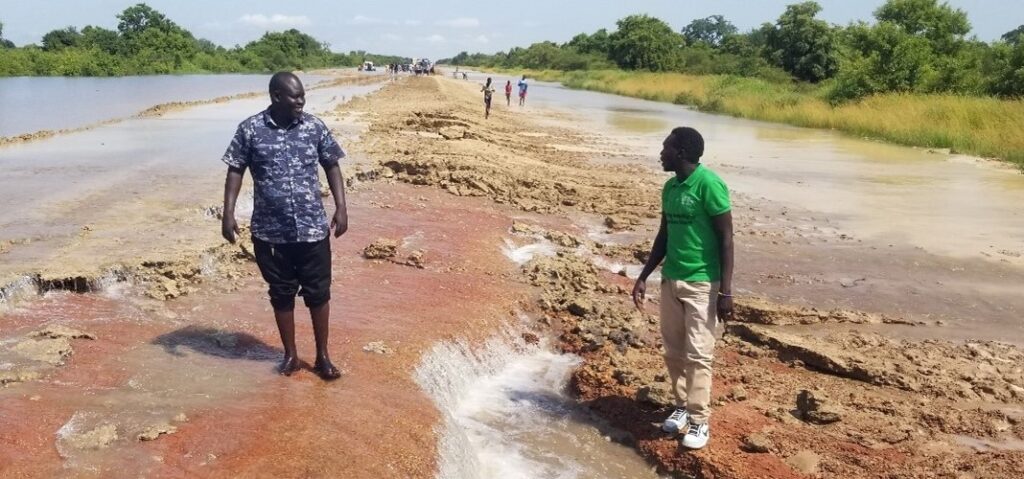German Development Cooperation GIZ on Wednesday launched the rehabilitation of a dyke in Muil Akong Village of Aweil West County.
The dyke, which is expected to protect farmlands, homes and properties, is part of a cash for work activity, thus providing incomes for workers and their families to sustain their livelihoods and recover from flood impacts.
In August, GIZ and its partner organizations conducted a rapid needs assessment to evaluate the severity of flood impacts on farms, infrastructure as well as community livelihoods and services. The assessment found serious destruction of farms, homes, road infrastructure, drinking water sources and livelihoods.
Many residents as well as their livestock had been displaced by the floods. To protect the remaining farms and reduce future flood impacts, the assessment recommended several measures, including cash transfers, construction and the rehabilitation of dykes.
The dyke rehabilitation is supported by the Food and Nutrition Security and Natural Resource Management –FONA, which is implemented by GIZ on behalf of the German Federal Ministry for Economic Cooperation and Development (BMZ) and in cooperation with World Food Program and UNICEF.
Working directly with smallholder farmers and cooperatives in Aweil West and Aweil Center (Northern Bahr el-Ghazal) and in Nzara and Yambio (Western Equatoria), the project aims to support farmers in increasing their harvest and providing a more varied and healthier diet to the populations.
The project also works with the local communities to improve natural resource management, which helps to reduce the negative consequences of extreme climate events. Together with local natural resource and disaster risk management committees, the project identifies measures to help communities and respond to disasters.
GIZ provides humanitarian assistance and supports the long-term development of South Sudan in local governance, rural development, sustainable agri-food systems, water and sanitation supply, peace and reconciliation, gender equality and SGBV prevention.




